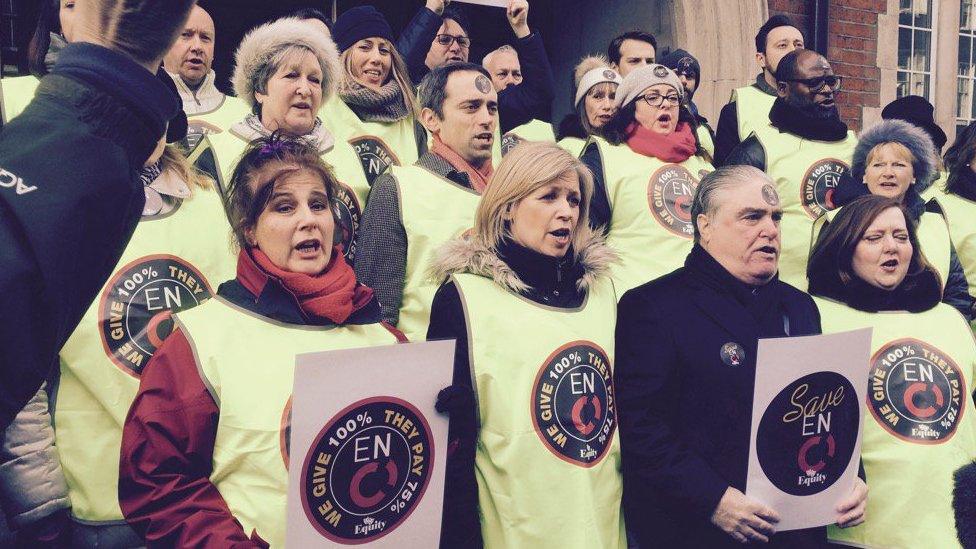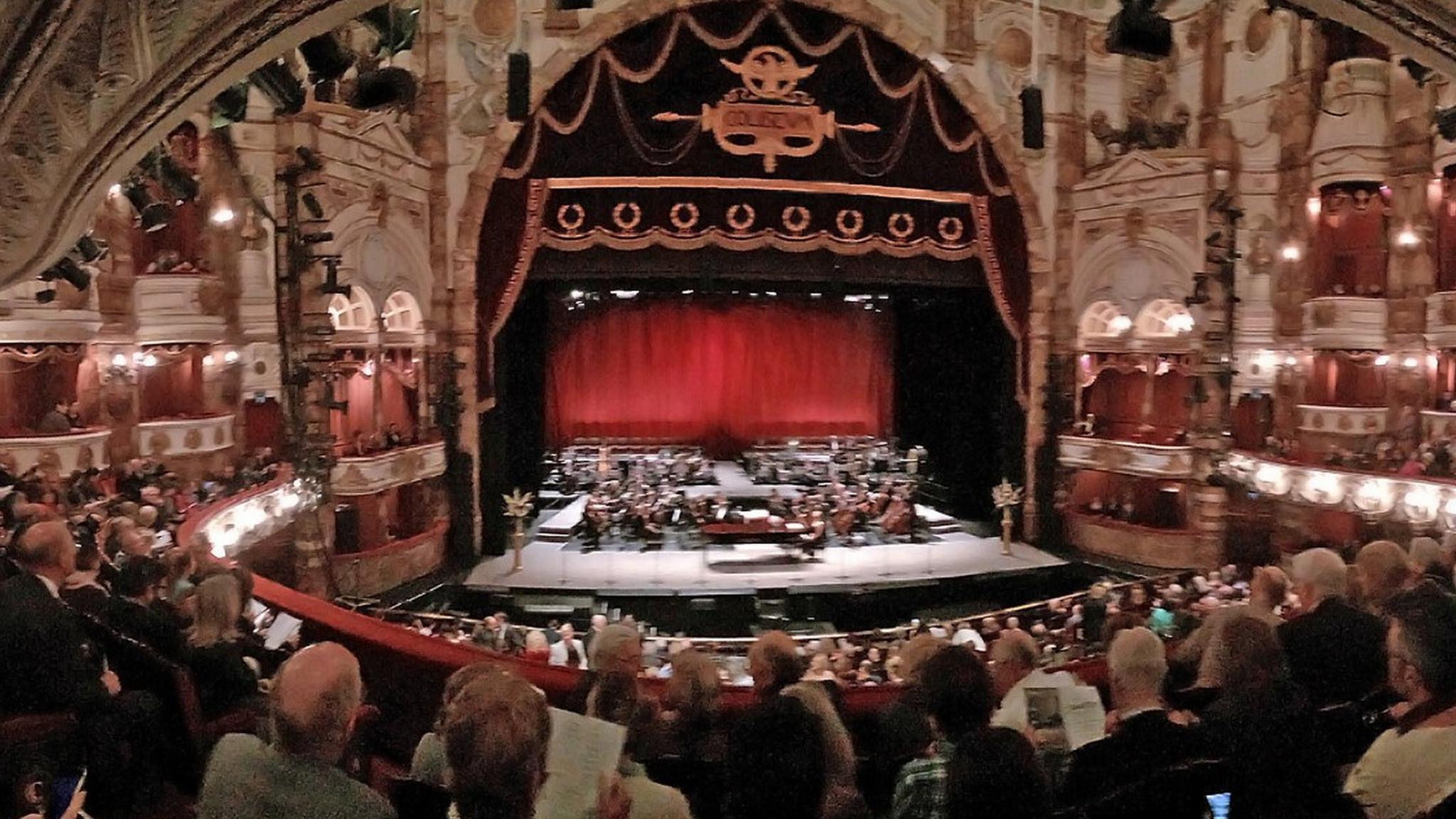ENO chorus vote to strike over pay and job cuts
- Published

Striking ENO singers sang outside the Arts Council England offices on Friday morning
Singers at English National Opera have voted to go on strike in a dispute over pay and jobs.
Forty-two members of the 44-strong chorus backed industrial action in a ballot held by union Equity - two were absent due to maternity and sick leave.
The chorus will refuse to sing in the first act of a performance of Akhnaten in London on 18 March.
The ENO said it was "extremely disappointed" by the outcome of the ballot.
"Given the assurance that no action would be taken which would damage the company, we are saddened that the action [the chorus] have chosen seems specifically designed to cause the utmost harm to both the company and our audience," it said, in a statement.
The company also claimed Equity had held the ballot before undertaking any serious negotiations with them.
The chorus - 97.7% of whom voted to strike on Friday - are protesting against plans to cut pay by 25% and axe four jobs.
By refusing to sing during the first act of Akhnaten, the chorus will be absent for around a quarter of the full duration of the performance - a reference to the proposed 25% cut.
The union have announced they will take further action prior to the strike, from Friday 4 March.

Analysis by Will Gompertz, BBC Arts Editor
Nobody is having much fun down at the ENO.
The management are trying to balance the books after Arts Council England cut its core funding to the company by £5m. A financial blow not helped by its autumn production of La Boheme, which traded badly at the box office.
The chorus members, meanwhile, are deeply upset by the management's insistence that they sign new, less favourable, contracts.
All appear to agree money needs to be saved if the company is to survive. But how? The management argue that the ENO needs fewer members of its permanent chorus, which currently stands at 44, and wants those that remain to sign up to a nine, not 12, month contract. The ENO says a 10th month would be paid as holiday.
The chorus members say such a move would not only make living and working in London very difficult, but it would also undermine their ability to produce the quality of work expected of a major international opera company.
The dispute is taking place while the organisation searches for a new artistic leader, following the resignation of the long-serving John Berry last year. The management says they want to resolve the situation before an artistic head is appointed, Equity argue that the situation the ENO finds itself has been caused by artistic decisions and can therefore only be put right by an incoming artistic director.

The ENO said their actions would "undermine the pride the whole company has" and "let down every audience member who has paid to see this show".
It denied it was proposing a 25% pay cut on singers' annual pay, as Equity had initially suggested.
Instead, it said it is asking the chorus to reduce their contracted time with the company by 25% - moving from a 12-month contract to a nine-month contract.
On Friday morning, the chorus handed in a letter outlining its case to the head office of the Arts Council of England and sang a song from the Mikado on the steps of the headquarters in London.
Equity's Martin Brown predicted that the performance may not go ahead without the chorus.
"The opera world is appalled that this world-class choir is facing such pay cuts," he said. "We have had fantastic support from the arts world and audiences."
He added that "some progress has been made in talks."
In February last year, the Arts Council dropped ENO from its national portfolio of organisations for 2015-18. Two months later, the ENO announced it was cutting ticket prices in an attempt to secure its financial future.
Earlier this month, chief executive Cressida Pollock said the ENO was "committed to preserving a permanent chorus at ENO". But she added the company had "some difficult decisions to make over coming weeks".
- Published8 February 2016
